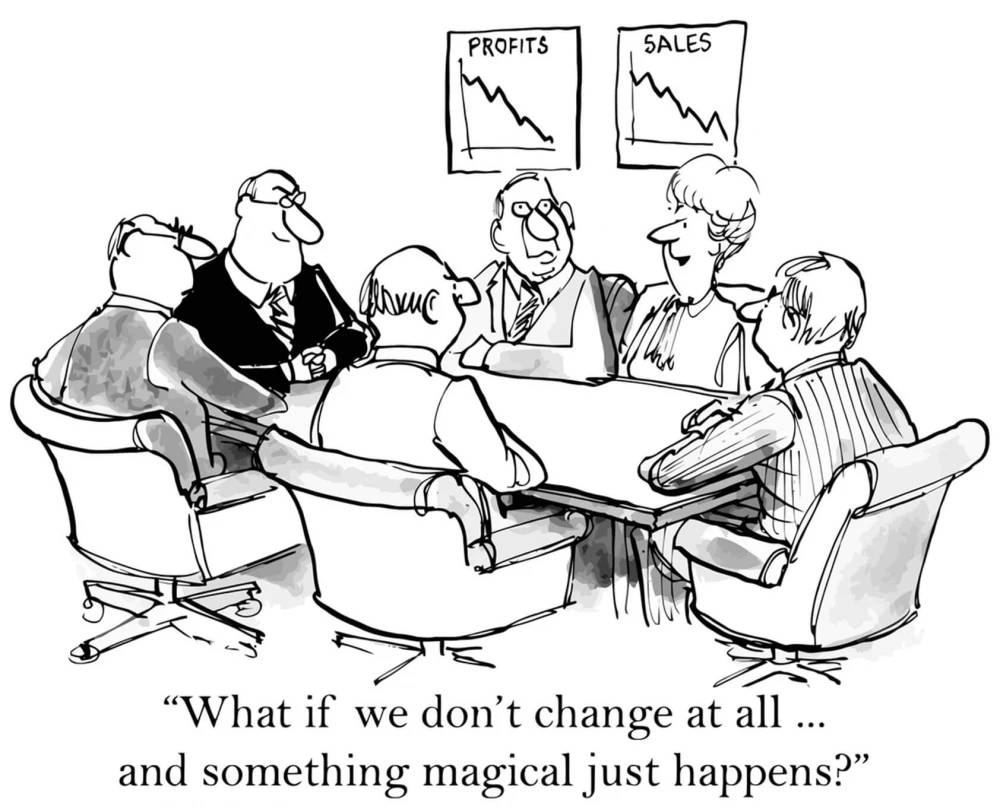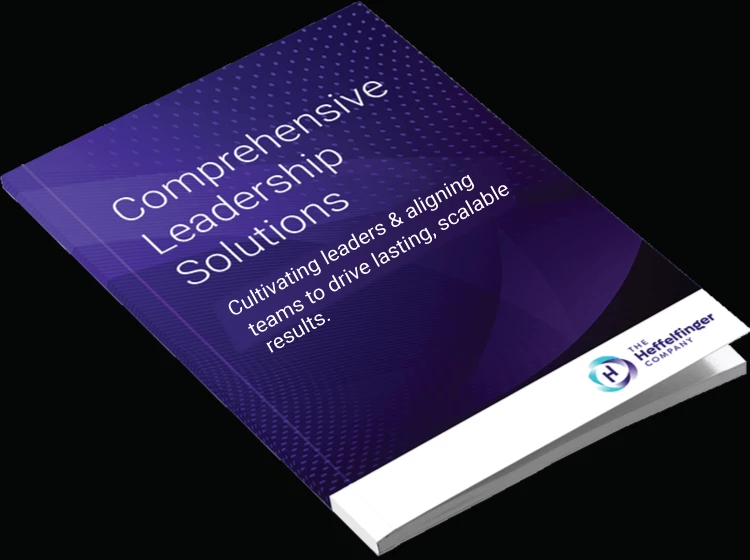Why is 64% of the workforce disengaged?
Employee disengagement is a growing challenge for organizations, with many workers lacking the motivation and accountability needed to drive organizational success. Disengaged employees not only underperform individually but also harm team morale, which leads to increased turnover and weakened organizational performance. Employers often struggle to understand the root causes of this disengagement, but often, it stems from a leadership style that fails to empower employees and creates an environment lacking in trust and autonomy.
In order to overcome these challenges, leaders must create a workplace culture where employees feel valued, trusted, and motivated to take ownership of their roles. This is a challenging issue, especially in a world where employees no longer trust leaders or institutions (business, non-profit, government). Employees want to respect their leaders and look to them to solve their problems for them, along with the organization's problems, and even to take part in solving societal problems.
Leaders need to do many things simultaneously:
By shifting their focus from control to collaboration and providing employees with the tools and trust they need to succeed, leaders create a foundation for accountability, innovation, and sustainable growth.
Leaders create and support a culture of trust and collaboration by recognizing that employees need to feel seen, heard, and appreciated before they can even think about taking control of their own issues and being part of solving the organizational issues that most vex them.
These focus areas cannot be underestimated. “We are seeing this play out nationally and globally. We see groups of people who don’t feel seen and heard act out. Until they feel it, they will struggle to find a way to their own agency, or they will use that agency in non-productive ways. The challenge is that leadership change takes a lot of time, and there are vastly differing perspectives. However, without leaders taking the time to work with employees to figure this out, the situation will remain the same (employees looking to leadership to solve their problems),” shared Heffelfinger Co. Principal & Executive Coach, James Jackman.
The Connection Between a Control-Based Authoritarian Leadership Style and a Disengaged Workforce
According to Intégro Leadership Institute Founder Keith Ayers, many workplaces struggle with low employee engagement because of control-based authoritarian leadership styles. Ayers believes that when leaders try to control every decision, they create an environment where employees feel powerless and unmotivated. Instead of building trust, this approach leads to disengagement, with a whopping 64% of employees reportedly feeling disengaged or actively disengaged in a recent survey. Ayers suggests a better way: give employees choices and help them see that they have the ability to make decisions. When people feel trusted and supported, they naturally take responsibility for their work and want to contribute in a meaningful way.
Forcing accountability doesn’t work; people need to choose to take responsibility on their own but how to help employees do this?
The Connection Between Systems Thinking and an Empowered Workforce.
Barry Oshry has written about Systems Thinking and Seeing Systems and the impact on employees at all levels on finding their agency, taking control of their own destiny, and then tackling organizational issues with their colleagues. Reference our previous blogs on System Thinking and The Organization Workshop. Seeing Relationships in Systems - Part One | The Heffelfinger Company
It is easy for employees at all levels of an organization to feel helpless and unempowered - looking upward to senior leadership for the answers. However, senior leadership is often overwhelmed with external and internal challenges and attempts to take responsibility for it all without supporting middle managers and employees in taking responsibility on their own.
Senior leadership must let go and realize they can’t do it all. Middle managers and employees need to recognize that due to normal systems conditions, they need to find their agency and collaborate with others at their level who see what they see and are motivated to work with them to solve challenges.
What is an Agency?
A sense of agency refers to the feeling of control a person feels over their own actions and consequences. In the workplace, agency empowers employees to think critically, take ownership of their responsibilities, and influence outcomes within their roles. It’s not just about having authority; it’s about fostering a sense of autonomy and purpose that enables workers to align their efforts with both personal and organizational goals.
Why Does Agency Matter in the Workplace?
When employees feel a sense of agency, it directly contributes to engagement, productivity, and organizational success. When employees know that leaders trust them to make decisions and that they have a voice in the work they produce, they are more likely to feel valued and motivated. This sense of empowerment creates a more innovative environment where employees take the initiative and propose creative solutions, leading to sustainable growth. On the other hand, when leaders take away their employees’ sense of agency through micromanagement, it typically leads to disengagement and high turnover rates.
Keith Ayers shared, “We don’t get passionate customers without passionate employees who take responsibility for delivering value in every interaction. How do we get employees to be responsible? We need self-directed people so we need to create an environment where self-directed people can flourish.”
Personal Responsibility Model
Personal responsibility in the workplace means taking ownership of your actions, decisions, and tasks. For employees, it means doing their job well, managing their own time, and being honest if they make a mistake while working to fix it. Employees who show personal responsibility build trust because they are dependable teammates, which helps everyone succeed. But how do leaders help their employees choose personal responsibility?
The Intégro Personal Responsibility Model, developed by the Intégro Leadership Institute, focuses on building trust and fostering personal responsibility within organizations. The model emphasizes that trust between employees and management is the basis of a healthy workplace culture, which is essential for high performance. Through tools like the "Trust Inside Assessments" offered by Heffelfinger Co., the model helps organizations measure team alignment, flexibility, and trust to improve leadership and organizational dynamics. This approach aims to create a culture where individuals take accountability for their actions, leading to higher engagement and better organizational outcomes.
Unleash the Best of What Already is and Lean into the Power of Possibility
To build a successful organization, leaders must create a culture of trust where employees feel empowered to take ownership of their roles. At Heffelfinger Co., we help organizations achieve this by teaching leaders to foster agency and personal responsibility. Through the Intégro Leadership Institute’s Personal Responsibility Model, we guide companies in developing self-directed employees who contribute to long-term success. As a certified associate and licensed provider of Intégro’s “Trust Inside Assessments,” our team gathers information about your organization so we can help improve team dynamics and leadership.
If you're ready to empower your employees and transform your workplace culture, visit our Cultural Transformation services page to learn more about how we can help your organization thrive.
Bring the Organization Workshop to your organization (either in person or virtually) - ask us how. Contact Us | The Heffelfinger Company
James & Lori
James Jackman & Lori Heffelfinger
Source:
Intégro Leadership. https://www.integroleadership.com/. Accessed 11/15/2024.
Seeing Systems: Unlocking the Mysteries of Organizational Life: Oshry, Barry. Published August 12, 2007.







